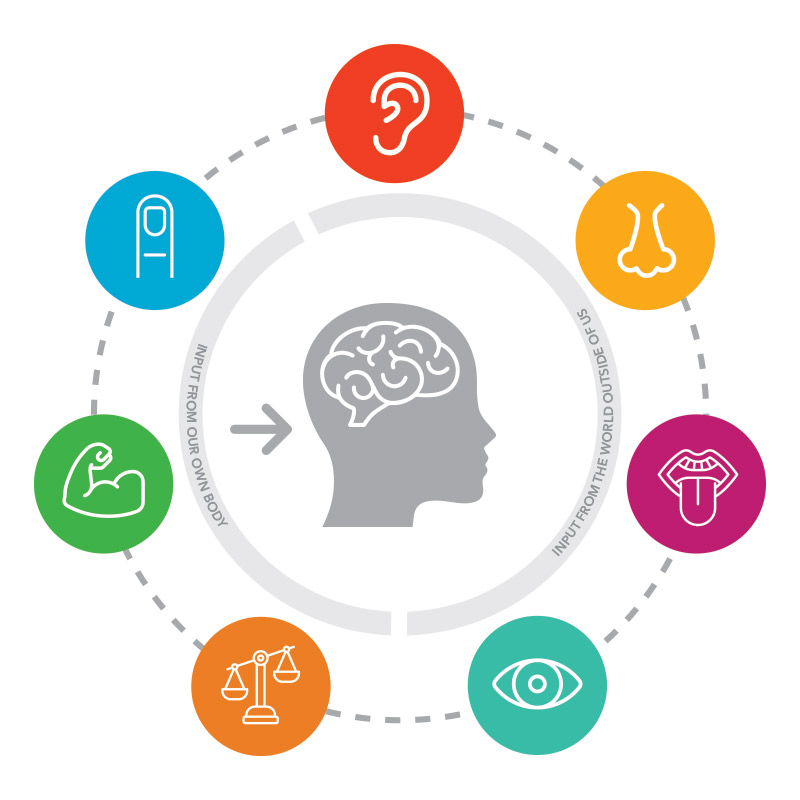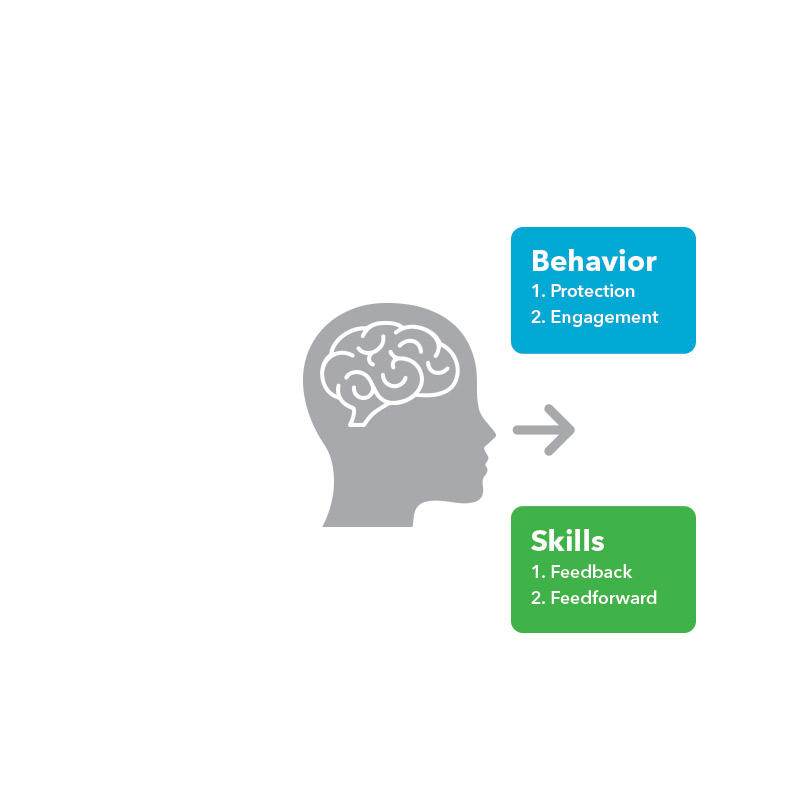“Sensory Integration is the neurological process that organizes sensation from one’s own body and from the environment and makes it possible to use the body effectively within the environment.”
-Ayers, Jean 1972
-Ayers, Jean 1972
Most of us have learned about our five senses: taste, touch, sight, smell, and hearing. Most of us also do not know that we have more than five senses. All of these senses work together in very complex ways to help us function and they do it without our conscious awareness.


When this neurological process in not well organized, then sensory processing is disorganized or disordered. The brain then has difficulty paying attention, learning, or how to use the body in an effective and efficient way to perform everyday activities..
Symptoms of sensory processing disorders are difficult to define. The way in which a disorder presents itself varies greatly from person to person. This is likely due to individual differences and the ability of sensory systems to adapt (or attempt to adapt) to deficits.
For example a person who is blind may develop a heightened sense of hearing, touch, smell, and movement to adapt to a lack of vision. Other factors include genetics and environmental factors. Since we have multiple sensory systems, have a diverse gene pool, and have a range of exposure to environments and experiences, numerous combinations in symptoms is not just possible but highly likely.
What is important in identifying sensory processing disorders is identifying the patterns of symptoms and how behaviors and observations relate to sensory systems.
Schedule An EvaluationWe recommend scheduling an evaluation with an experienced therapist if you suspect your child may have a sensory processing disorder or if your child has been diagnosed with an attention deficit disorder, autism spectrum disorder, developmental delay, behavioral problem, difficulty developing social skills, or is struggling at home or in school. An evaluation never hurts and you will likely leave with a better understanding of your child.
A referral from your pediatrician/medical professional is only necessary if you are planning to utilize health insurance. If you need a referral, call your pediatrician for a prescription for an occupational therapy evaluation and treatment. You may be required to make an appointment to document and/or discuss your concerns.
Because pediatricians are often very busy taking care of children and pressed for time, we recommend that you go to your appointment prepared. Write down a list of your concerns and specifically request a referral for an occupational therapy evaluation to address your concerns. Most pediatricians will support your well founded request. Should your pediatrician have questions or concerns, we always welcome phone calls to discuss the situation. The prescription and referral information can be faxed to our office.